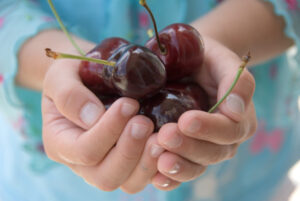
Virgil Evetts
I’ve been having a bit of an internal debate lately about the pros and cons of bottled still water (of the Pump et al varieties). It doesn’t concern me that much of it consists of little more than filtered tap-water – it doesn’t purport to be anything else (with exception of that curious phenomenon, the Sports Water). Nor am I worried about the risk of contamination from the various carcinogens and pseudo-hormones that may or may not migrate from plastic to water -a deep breath of Auckland air probably does more to bother your immune system. My concern is more a matter of ethics and priorities.
The cult of the water bottle is a powerful force. To younger consumers a bottle of water is almost as indispensible as a mobile phone. It’s an accessory. And this has not happened by mere chance, but by way of a concerted effort from both the beverage industry and health authorities (not that they are in cahoots), to convince people of the sexiness and health benefits attributable to drinking water. It’s a little worrying that we need to be told to do something that should be instinctive and is essential for our survival, but whatever works, I guess.
As someone who works in the education sector, I can tell you from experience that hydrated children are more effective learners than the parched alternative. The contrast is extraordinary and the evidence overwhelming. It has been a delight on a number of levels to observe the slow but steady replacement of luridly coloured soft drinks with water in packed lunches over the last decade (although there is still plenty of room for improvement here). Soft drinks are known contributors to obesity and type 2 diabetes rates, and in my view barely rate as safe for human consumption – let alone as dietary staples. So to me, this is an immeasurably important social change.
But.
And this is a very serious “but”. Do these benefits outweigh the negative environmental impacts caused by the resulting plastic waste? Food-grade plastics are not easily recyclable – or to qualify that, recycled food-grade plastic has limited industrial use, and the surplus slag (shredded or pelletized waste plastic) in the world today considerably outweighs any demand. So it might as well be going into landfills – and much of it does. While this is also true of the packaging from most of the foods and drinks we buy, the difference here is that water is piped into our homes, offices, schools, sports clubs etc. It doesn’t need to be bottled; we just seem to prefer it that way.
Further to this, and it might sound like niggling (hey, I’m nothing if not pedantic) – what about the energy used manufacturing the bottles, the petrol used in shipping the finished product, the associated carbon dioxide pouring into the atmosphere…?
I should probably add that I’m very fond of bottled sparkling mineral water. I don’t drink it as an alternative to tap water; I drink it as a beverage in its own right. I like the flavour, the way it tickles my palate, and I think it enhances the overall dining experience. Maybe that takes away my right to grumble? I don’t care; there’s no law against hypocrisy.
What do you think?
Is it more important to have a hydrated population- especially children or to reduce what is in this case completely unnecessary plastic waste?





I do like bottled water but only for when we are away from home. Its a much better preference for us and the childrent o drink when away.
But what sort of puzzles me is that “pump” water comes from a Putaruru spring and most homes have this water coming out of there taps. But they still cahrge you for bottled water that you can get at home? Im just wondering why its not cheaper? After all iots bottled in Putaruru (well last I heard it was).
I agree that bottled water is a healthier alternative than flavoured fizzy drinks, but ironically, in some cases, the same company owns both. I can only guess where the larger profit margins lie..? I think the water wins there! I’m a “re-filler” myself. I already pay my rates to have someone make my drinking water, so I’ll save my money where I can these days~ But just as a drink tastes better in a crystal glass,I concede it’s all in the packaging; if it looks good,it tastes good!
I’m with Rosa, I struggle a little to understand the backlash against bottled water.
Let me take you though my purchase decision process – I am out of the house. I need a drink. Tap water doesn’t come into my consideration set – I’m at a dairy or a gas station, I’m not going to go to the loo and drink out of the tap. So basically you are choosing between water or water + sugar and flavour (and whatever else). If you ban/tax/whatever bottled water you are just going to push up consumption of other stuff in bottles. Bottled water and tap water are no more substitues for each other, at least in my case, than a hotel room and your own house.
I wonder, and this may be drawing a slightly long bow for the pro bottle brigade, whether a similar argument can be drawn between bottled watter and disposable nappies – “they” say that there is an equal environmental impact from washing cloth nappies as there is to dumping a disposable. I wonder if the same is true about washing a glass every time you have a drink vs refilling a bottle x number of times before binning it.
All water is recycled not just in the UK! Due to the finite nature of water on our planet it has all been through many many people and animals before we drink it now. Natural and manmade filtration and cleansing mean that in the countries we live tap water is just fine, recycled and all.
I buy a Pump bottle once every couple of months and refill it to have on my desk at work, beside the bed at home, and at the gym. Okay, so buying a new one every so often has a greater environmental impact than using the conventional plastic sports bottles – but I always disliked the way they got kind of fusty after a while and I REALLY like being able to see inside the clear plastic to tell when it’s getting gross!
I also like that if I lose it (something I’m pretty prone to) or beat it up it doesn’t matter all that much – there may be merits in a stainless steel version but I’d probably misplace it before too long!
Also, you comment on how water is replacing soft drinks – I’ll wager that the majority of people here operate the same way I do, using the same bottle for a while and refilling it – so presumably that means less consumption of processed beverages overall? So my opinion is that they probably do more good than harm – I know I benefit from being hydrated frequently and that I might have benefited from the ubiquitous Pump bottle when I was at school if it had been the done thing back then.
I say we have both – by putting re-usable drink bottles in our children’s school bags filled with tap water – which I’m sure is what the majority of parents do.
I reckon the bottled water phenomenon has infiltrated NZ from countries like the UK where drinking water is recycled. ‘They’ say that the water that comes out of the tap in London has been through nine people already.
Bottled water in NZ is an expensive convenience – like if you’re in the middle of a long car trip with the kids and *someone* forgot to bring water bottles. It’s like having chickens then buying your eggs at the supermarket. Unnecessary.
I rarely buy the bottled stuff unless I’m going some place (like camping in the wops) where I’m unwilling to take my chances with giardia. I tote a stainless steel water bottle (the Ecotanka kind) with tap water in it and my kids have the same. Hydration is good but yes, the plastic explosion is a bit of a worry.